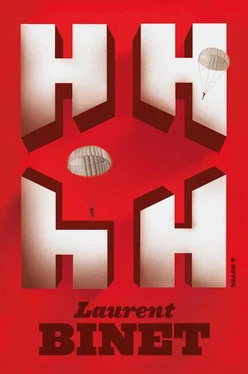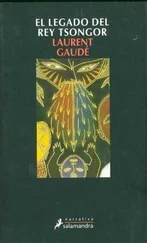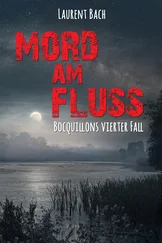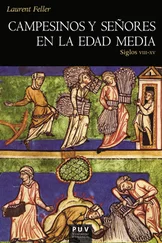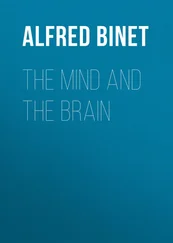Laurent Binet - HHhH
Здесь есть возможность читать онлайн «Laurent Binet - HHhH» весь текст электронной книги совершенно бесплатно (целиком полную версию без сокращений). В некоторых случаях можно слушать аудио, скачать через торрент в формате fb2 и присутствует краткое содержание. Город: New York, Год выпуска: 2012, ISBN: 2012, Издательство: Farrar, Straus and Giroux, Жанр: Историческая проза, на английском языке. Описание произведения, (предисловие) а так же отзывы посетителей доступны на портале библиотеки ЛибКат.
- Название:HHhH
- Автор:
- Издательство:Farrar, Straus and Giroux
- Жанр:
- Год:2012
- Город:New York
- ISBN:978-0-374-16991-6
- Рейтинг книги:3 / 5. Голосов: 1
-
Избранное:Добавить в избранное
- Отзывы:
-
Ваша оценка:
- 60
- 1
- 2
- 3
- 4
- 5
HHhH: краткое содержание, описание и аннотация
Предлагаем к чтению аннотацию, описание, краткое содержание или предисловие (зависит от того, что написал сам автор книги «HHhH»). Если вы не нашли необходимую информацию о книге — напишите в комментариях, мы постараемся отыскать её.
HHhH — читать онлайн бесплатно полную книгу (весь текст) целиком
Ниже представлен текст книги, разбитый по страницам. Система сохранения места последней прочитанной страницы, позволяет с удобством читать онлайн бесплатно книгу «HHhH», без необходимости каждый раз заново искать на чём Вы остановились. Поставьте закладку, и сможете в любой момент перейти на страницу, на которой закончили чтение.
Интервал:
Закладка:
But on June 10, 1942, neither he nor anyone else is aware of all this—least of all Gabčík and Kubiš. The news of the village’s destruction plunges the two parachutists into horror and despair. More than ever, they are wracked by guilt. No matter that they have fulfilled their mission, that the Beast is dead—no matter that they have rid Czechoslovakia and the world of one of its most evil creatures—they feel as if they themselves have killed the inhabitants of Lidice. They also fear that, as long as Hitler does not know them to be dead, the reprisals will continue indefinitely. Enclosed in the crypt, all of this churns over and over in their heads, until—exhausted by the nervous tension—they reach the only possible conclusion: they must turn themselves in. In their fevered brains they imagine asking to see Emanuel Moravec, the Czech Quisling. When they see him, they will hand over a letter explaining that they are responsible for Heydrich’s assassination; then they will shoot him, and kill themselves in his office. Lieutenant Opalka, Valčík, and the other comrades in the crypt need all their patience, friendship, diplomacy, and persuasiveness to convince the guilt-ridden parachutists not to go through with this insane plan. First of all, it’s technically unfeasible. Second, the Germans will never take them at their word. Finally, even if they managed to carry out their plan, the terror and the massacres had begun long before Heydrich’s death, and would continue long after their own. Nothing would change. Their sacrifice would be completely in vain. Gabčík and Kubiš weep from rage and powerlessness, but they end up being convinced. All the same, no one ever manages to persuade them that Heydrich’s death was good for anything.
Perhaps I am writing this book to make them understand that they are wrong.
241
An Internet site designed to get young Czechs interested in the history of the village of Lidice, which was utterly destroyed by the Nazis in June 1942, is offering an interactive game, the goal of which is to “burn Lidice in the shortest possible time.”
( LIBÉRATION , SEPTEMBER 6, 2006)242
The Gestapo is so short of leads you might think they’d given up looking for Heydrich’s assassins. They need a scapegoat to explain this incompetence and they think they might have found one. He is a civil servant for the Ministry of Work, and on the evening of May 27 he authorized the departure of a train full of Czech workers going to Berlin. Given that the three parachutists still haven’t been found, this lead seems as good as any other—so the Gestapo “establishes” that the three assassins (yes, the inquiry has made some progress—they now know that there were three of them) were on board the train. The men from Peček Palace are even in a position to give some surprising details: the fugitives hid beneath their seats during the journey and got off the train while it made a brief stop in Dresden, where they disappeared into the countryside. It’s true that the idea of the terrorists leaving their own country to take refuge in Germany seems rather daring, but you have to be more daring than that to escape the Gestapo. Unfortunately, the civil servant is not prepared to be the scapegoat, and his defense takes them by surprise: yes, he authorized the train’s departure, but only because he was told to do so by the Air Ministry in Berlin. Göring, in other words. Not only that, but the meticulous bureaucrat has kept a copy of the authorization, stamped by the Prague police services. So if there’s been a mistake, the Gestapo would have to accept its own share of the responsibility. The men from Peček Palace decide not to pursue this particular lead.
243
The idea that finally solves the problem comes from that old soldier Commissioner Pannwitz, clearly a fine connoisseur of the human soul. Pannwitz begins with this observation: the climate of terror deliberately created since May 27 is counterproductive. He has nothing against terror, but in this case it’s inconvenient because it scares off those who might otherwise be tempted to inform. More than two weeks after the attack, nobody is going to risk trying to explain to the Gestapo that they know something but that, up to now, they haven’t admitted it. The Gestapo must promise—and deliver—an amnesty for anyone who comes forward of their own free will and provides information on the assassination, even if they themselves are implicated.
Frank is persuaded by these arguments and decrees an amnesty for whoever provides— within five days —information leading to the capture of the assassins. After that he won’t be able to contain Hitler and Himmler’s lust for blood any longer.
As soon as she hears this news, Mrs. Moravec understands what it means: the Germans are staking everything. If, after five days, nobody has denounced her lads, they will be free from any further fear of informers and their chances of survival will increase considerably. Because, once the amnesty has expired, nobody will dare to go and see the Gestapo. Today, June 13, 1942, a stranger turns up at Mrs. Moravec’s apartment, but there’s nobody there. The man asks the concierge if Mrs. Moravec has by any chance left a briefcase for him. He is Czech but he doesn’t give the password, “Jan.” The concierge says he knows nothing about it. The stranger leaves. Karel Čurda has almost resurfaced.
244
Aunt Moravec has sent her family to the countryside for a few days, but she herself has too much to do in Prague. She washes and irons clothes, and she runs errands all over the place. In order not to attract too much attention, she is helped by the concierge’s wife. They mustn’t be seen too often carrying packages, and naturally the parachutists’ hiding place must remain secret, so the two women arrange to meet in Charles Square, surrounded by flower beds and crowds of people. After that, the aunt walks down Resslova Street, enters the church, and disappears. Another time, they get on the same tram but the concierge’s wife gets off two or three stations earlier, leaving her bags, and the aunt picks them up. She brings the men cakes still warm from the oven, and methylated spirits for their old stove. She also brings them news from the outside world. The lads are all a bit under the weather, but their morale has improved. Heydrich’s death cannot erase the memory of Lidice, but gradually they come to realize the significance of what they’ve done. Aunt Moravec is welcomed by Valčík in his dressing gown. He looks a bit peaky, but he sports a thin mustache these days—and, my word, how very distinguished it makes him look. He asks for news of Moula, his dog. Moula is fine: he has been adopted by a family with a large garden. The swellings on Kubiš’s face have gone down, and even Gabčík has recovered a bit of his old joie de vivre. They are beginning to get organized, this little community of seven: they’ve improvised a sieve from an undershirt and they’d like to try to make coffee. The aunt promises to find some. Meanwhile, Professor Zelenka is working with the Resistance on some very hypothetical plans to get the parachutists out of the Reich. The problem is that Anthropoid was really designed as a suicide mission, so nobody gave much thought to the question of their return. First of all, they must be smuggled into the countryside, but the Gestapo is still under great pressure to arrest them and the city is in a state of maximum alert—so this will have to wait. It will soon be St. Adolf’s day, and as they wish to celebrate this (because, to be clear, Lieutenant Opalka’s first name is Adolf), Aunt Moravec is going to try to get hold of some veal scallops. She’d also like to make them a broth with chunks of liver. The lads no longer call her “Aunt,” but simply “Mom.” These seven highly trained men are now reduced to a state of total inaction, as vulnerable as children, cloistered in this damp cellar and wholly in the hands of this little lady who cares for them like a mother. She keeps repeating to them: “We just have to get through to the eighteenth.” Today is the sixteenth.
Читать дальшеИнтервал:
Закладка:
Похожие книги на «HHhH»
Представляем Вашему вниманию похожие книги на «HHhH» списком для выбора. Мы отобрали схожую по названию и смыслу литературу в надежде предоставить читателям больше вариантов отыскать новые, интересные, ещё непрочитанные произведения.
Обсуждение, отзывы о книге «HHhH» и просто собственные мнения читателей. Оставьте ваши комментарии, напишите, что Вы думаете о произведении, его смысле или главных героях. Укажите что конкретно понравилось, а что нет, и почему Вы так считаете.
